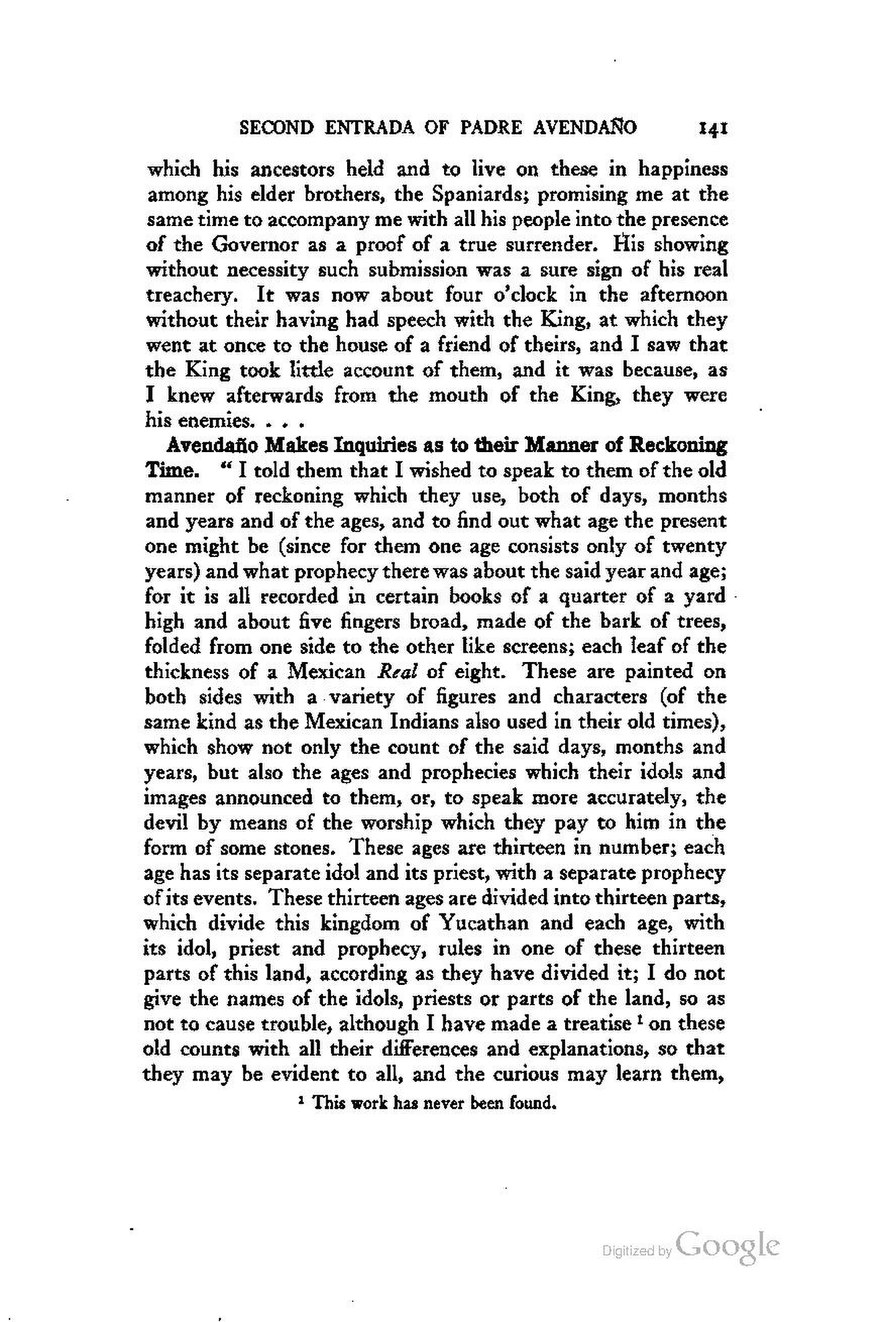which his ancestors held and to live on these in happiness among his elder brothers, the Spaniards; promising me at the same time to accompany me with all his people into the presence of the Governor as a proof of a true surrender. His showing without necessity such submission was a sure sign of his real treachery. It was now about four o'clock in the afternoon without their having had speech with the King, at which they went at once to the house of a friend of theirs, and I saw that the King took little account of them, and it was because, as I knew afterwards from the mouth of the King, they were his enemies....
Avendaño Makes Inquiries as to their Manner of Reckoning Time. "I told them that I wished to speak to them of the old manner of reckoning which they use, both of days, months and years and of the ages, and to find out what age the present one might be (since for them one age consists only of twenty years) and what prophecy there was about the said year and age; for it is all recorded in certain books of a quarter of a yard high and about five fingers broad, made of the bark of trees, folded from one side to the other like screens; each leaf of the thickness of a Mexican Real of eight, These are painted on both sides with a variety of figures and characters (of the same kind as the Mexican Indians also used in their old times), which show not only the count of the said days, months and years, but also the ages and prophecies which their idols and images announced to them, or, to speak more accurately, the devil by means of the worship which they pay to him in the form of some stones. These ages are thirteen in number; each age has its separate idol and its priest, with a separate prophecy of its events. These thirteen ages are divided into thirteen parts, which divide this kingdom of Yucatan and each age, with its idol, priest and prophecy, rules in one of these thirteen parts of this land, according as they have divided it; I do not give the names of the idols, priests or parts of the land, so as not to cause trouble, although I have made a treatise[1] on these old counts with all their differences and explanations, so that they may be evident to all, and the curious may learn them,
- ↑ This work has never been found.
